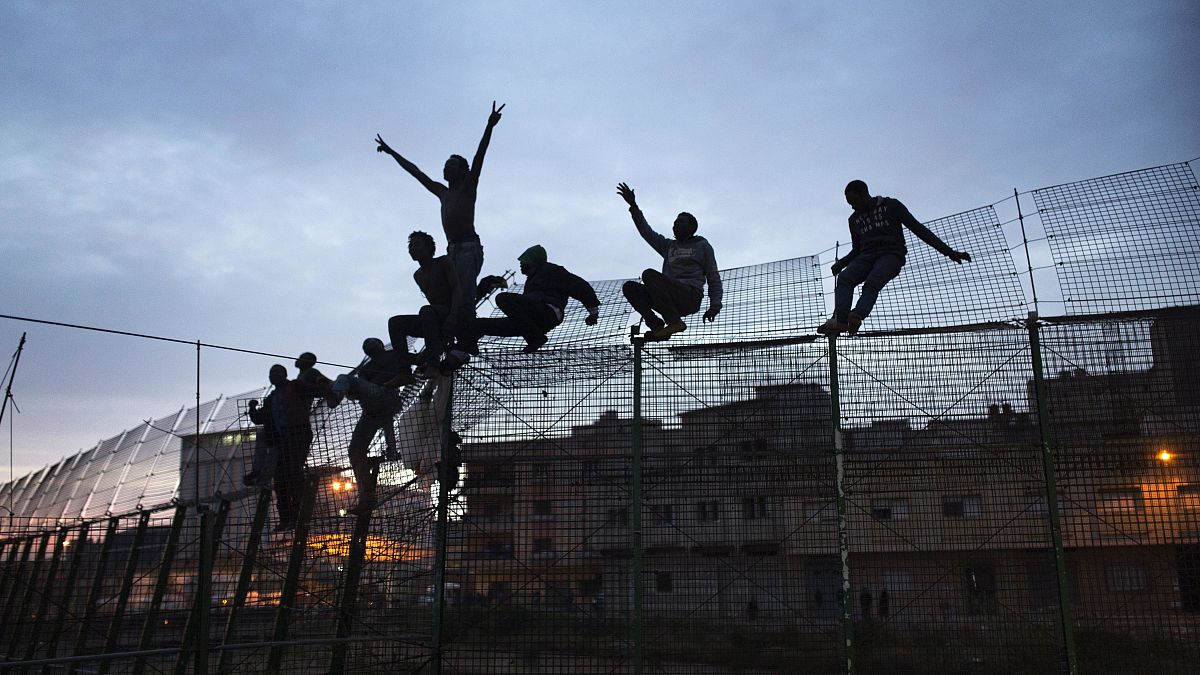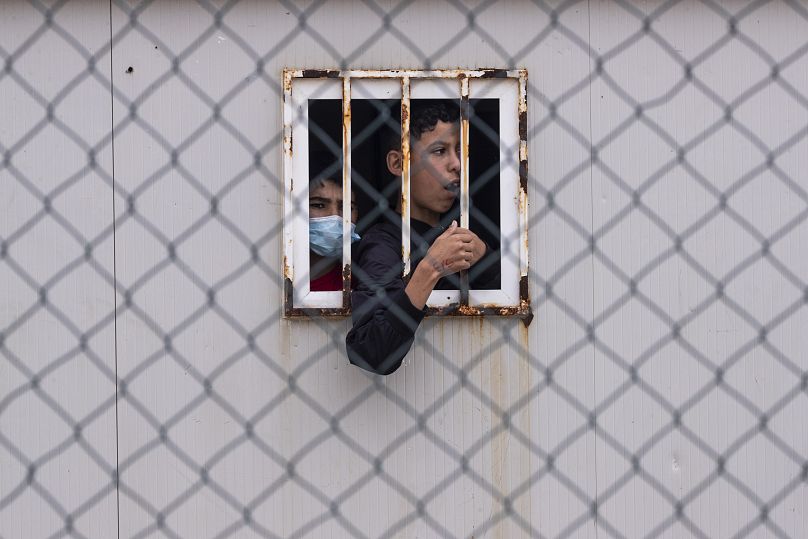Sunday has been a day of high tension in the area after hundreds of people gathered at the border following reported calls on social media for a collective breach attempt.
Moroccan police have prevented hundreds of migrants from crossing into Ceuta after dozens manged earlier on Sunday to cross the first border fence between Morocco and the Spanish enclave.
They were all intercepted before they could cross into Spanish territory.
Sunday has been a day of high tension in the area after hundreds of people gathered at the border following reported calls on social media for a collective breach attempt.
The young migrants are mostly Moroccans but some come from elsewhere in Africa, the Spanish news agency EFE reported.
The twin Spanish enclaves of Ceuta and Melilla are the only land borders between Africa and the European Union and both have experienced occasional mass waves of migrants trying to cross the border to reach the EU.
Local media reported hundreds of young Moroccans managing to get as far as Fnideq, the town nearest to Ceuta, before police apprehended them in the night and sent them home.
A police source told the AFP news agency that 60 people had been arrested between Monday and Wednesday for "fabricating and disseminating false information on social media" to encourage a collective illegal border crossing.
The Moroccan interior ministry said that in August, authorities blocked more than 11,300 attempts to cross into Ceuta and 3,300 to Melilla.
But the most popular route from Morocco for irregular migrants hoping to reach Spain is by sea. More than 22,000 arrivals were registered this year by August in the nearby Canary Islands, a 126% increase on 2023's numbers.
Morocco and Spain have worked to strengthen cooperation on addressing illegal migration since repairing a diplomatic rift in 2022 over Rabat's plans for autonomy for Western Sahara.
Morocco's interior ministry says that in the first eight months this year, authorities stopped more than 45,000 people from illegally entering European territory.
Last month, hundreds of migrants used thick mist as cover to swim to Ceuta, Spanish police said.
In June 2022, human rights organisations in Spain and Morocco called on both countries to investigate after 23 migrants were killed when around 2,000 people tried to breach the border.













